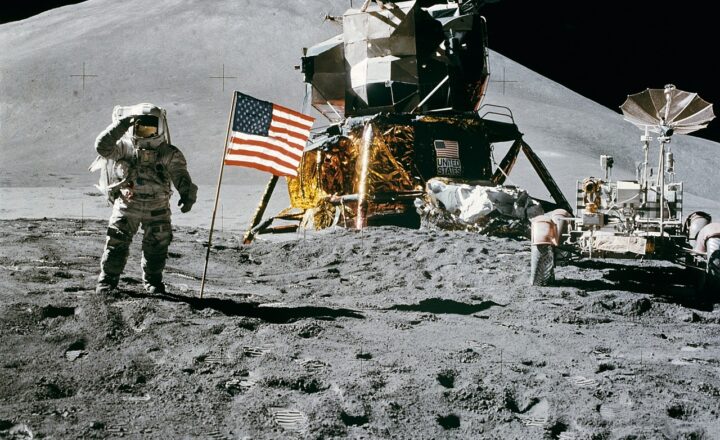
Exploration has been an intrinsic part of human nature since our earliest ancestors looked beyond their immediate surroundings. From the migration of early humans across continents to the daring voyages of voyagers in the Age of Discovery, the thirst for knowledge and the unknown has driven humanity to great feats. In this article, we will delve into the rich history of exploration, highlighting pivotal moments, remarkable individuals, and the profound impact of these ventures on our understanding of the world.
1. The Dawn of Exploration: Early Human Migration
The history of exploration begins with the very existence of Homo sapiens, as early humans migrated out of Africa and spread across the globe. Archaeological evidence suggests that the first migrations occurred around 60,000 years ago. Early explorers, motivated by survival, traversed varied terrains—mountains, deserts, and seas.
**Key Highlights:**
– **Migration Routes:** Evidence of ancient migration routes reveals that early humans followed animals for sustenance while adapting to new environments.
– **Cave Paintings:** Findings from sites like Lascaux in France show that early humans were not just survivors but also artists, suggesting a reflective and exploratory spirit.
The sheer will to explore reflects humanity’s desire to seek familiarity in the unfamiliar, establishing some of the initial pathways that would shape civilizations.
2. The Age of Ancient Exploration
As civilizations began to flourish, prominent societies such as the Egyptians, Greeks, and Romans embarked on exploration, primarily for trade and conquest. Ancient explorers laid the groundwork for future explorative endeavors.
– **Egyptians:** With remarkable seafaring technologies, the Egyptians explored the Red Sea and beyond, establishing trade routes involving ivory, gold, and exotic goods.
– **Phoenicians:** Renowned navigators of the Mediterranean, the Phoenicians ventured far beyond their shores, reaching as far as modern-day Spain and West Africa. Their expeditions contributed to cultural and commercial exchanges throughout the ancient world.
– **Greeks and Romans:** Figures like Herodotus and strabo documented lands and peoples, leading to an early understanding of geography. The Romans further expanded exploration through military campaigns and trade networks.
The curiosity and documentation by these ancient peoples laid a foundation for future explorers who would push boundaries even further.
3. The Age of Exploration (15th to 17th Century)
The Age of Exploration, spanning the 15th to 17th centuries, marked a turning point in human exploration with newly developed navigational tools and a growing human ambition to explore the uncharted. This era is defined by famous voyages that expanded the world’s maps and sparked global interactions.
– **Christopher Columbus (1492):** His voyages across the Atlantic forever changed the course of history, leading to the European colonization of the Americas. Columbus’ expeditions epitomize the spirit of discovery, driven by the pursuit of new trade routes and wealth.
– **Ferdinand Magellan (1519-1522):** The first expedition to circumnavigate the globe demonstrated the vastness of the Earth and brought people closer in unprecedented ways.
– **Vasco da Gama:** His sea route to India not only opened trade with Asia but also connected continents, resulting in the global exchange of goods and ideas.
During this time, the world became increasingly interconnected, with exchanges that transformed cultures, economies, and societies across the globe.
4. The Scientific Revolution and Exploration
The Scientific Revolution in the 17th century brought forth new knowledge about navigation, astronomy, and cartography, fueling further exploration. Key advancements played a pivotal role:
– **Improvements in Navigation:** The invention of the astrolabe and advancements in mapmaking enabled explorers to journey further into the unknown with greater accuracy.
– **Expeditions to the South Pacific:** Adventurers like Captain James Cook sought to chart territories from the Pacific Islands to the Arctic regions, enriching the world’s understanding of geography and cultures.
These explorations yielded findings that expanded knowledge about the Earth’s ecosystems, cultures, and peoples, forging a deeper connection with the unknown.
5. The Age of Modern Exploration
In the 19th and 20th centuries, exploration transformed once again as the focus shifted from conquest to scientific inquiry. Exploration began to explore our planet more thoroughly through field studies, scientific research, and technological advancements.
– **Polar Exploration:** Explorers like Ernest Shackleton and Robert Peary made monumental journeys to the poles, enduring harsh conditions and uncovering new insights about Earth’s environment.
– **Underwater Exploration:** In the 20th century, technology allowed for the exploration of our oceans. Jacques Cousteau’s contributions to underwater exploration opened new avenues in marine biology and conservation.
By investigating uncharted territories, modern explorers have gained crucial insights into global challenges like climate change and biodiversity.
6. The Future of Exploration
Today, exploration has evolved into a multi-faceted endeavor, thanks to the integration of technology and the quest for knowledge. Our focus has expanded beyond Earth to celestial exploration:
– **Space Exploration:** The launch of satellites, Mars explorations, and missions like those of the Hubble Space Telescope have given humanity a glimpse into the vast universe. Organizations like NASA and private companies are redefining what’s possible in space in the coming decades.
– **Environmental Exploration:** With the escalating climate crisis, scientists are exploring ways to sustain our planet, advocating to preserve natural resources and wildlife.
The essence of exploration remains unchanged—humanity continues to strive for understanding in the face of the unknown, driving us toward a more informed and interconnected future.
Conclusion
From our earliest ancestors to modern-day astronauts, exploration is a testament to human curiosity and resilience. The relentless quest for knowledge has reshaped our society time and again, expanding our understanding of the world and beyond. As we continue to push the boundaries of discovery, it is our collective spirit that will forge the paths of exploration in the future.
As we reflect on history, let us honor those brave men and women whose adventurous spirit led to significant breakthroughs, transforming the known into the unknown and continually enriching humanity’s tapestry of knowledge.








